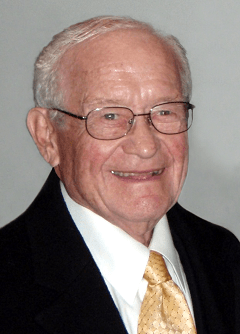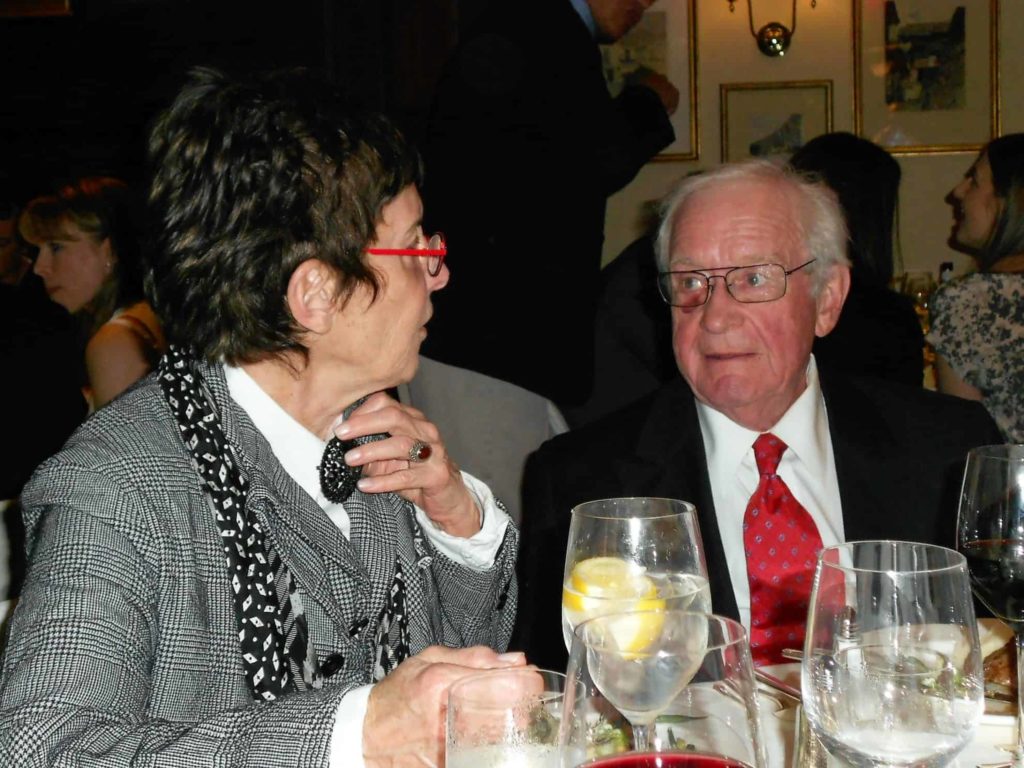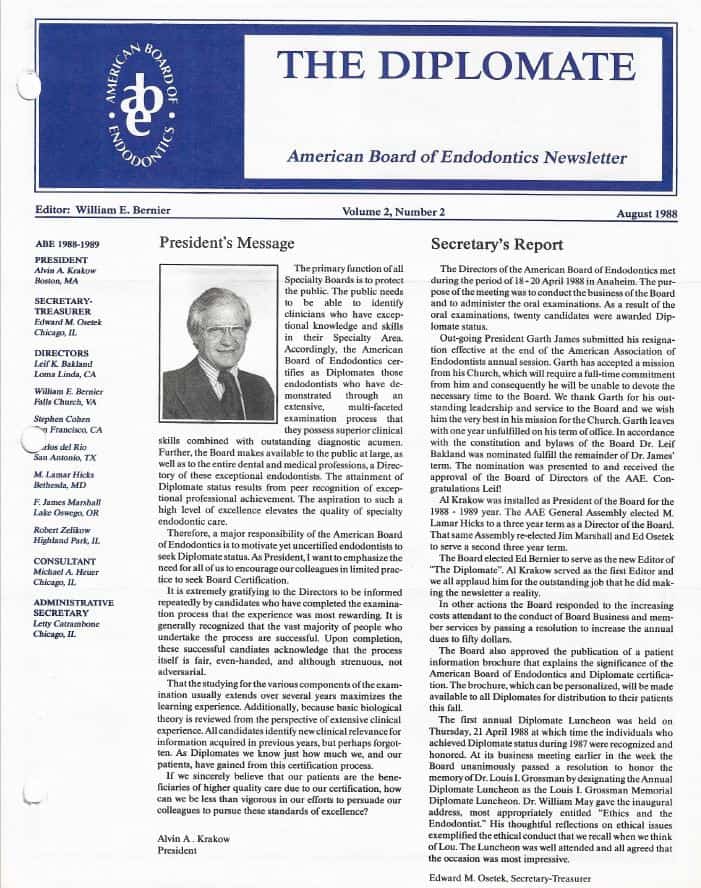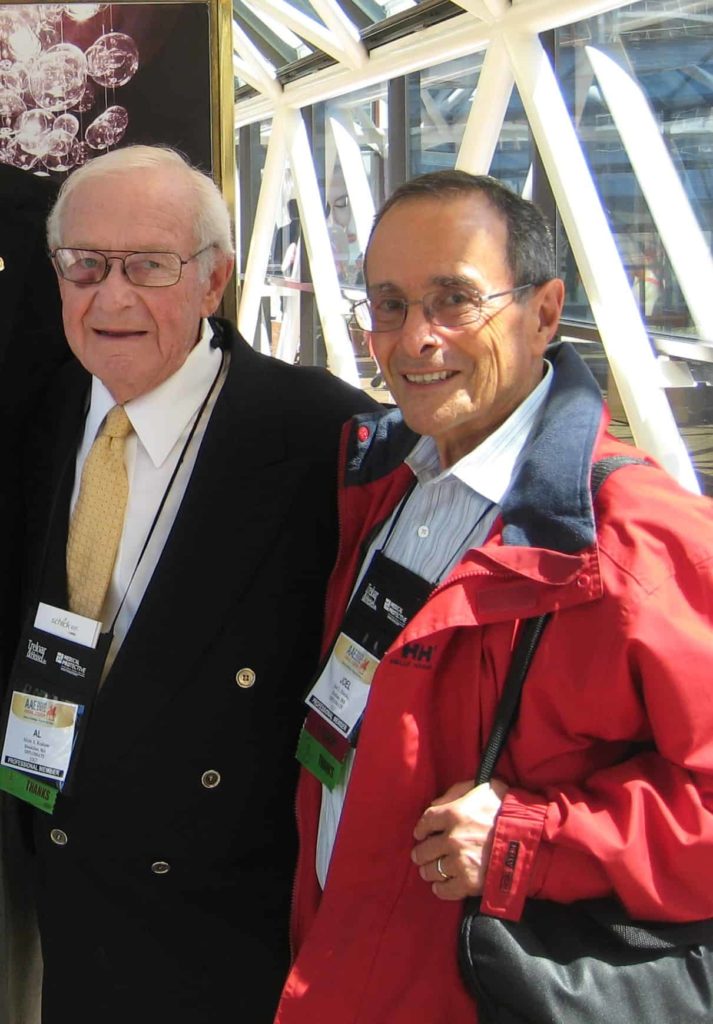Remembering Dr. Alvin Arlen Krakow (1929-2018): Endodontic Educator and Innovator

By Drs. Leif K. Bakland and Joel L. Dunsky
Key characteristics associated with leaders in all human endeavors include passion, vision, integrity, humor, curiosity, honesty, and fairness. When Dr. Alvin Arlen Krakow passed away on October 20, 2018, he left a legacy that can best be described using all those traits.
After completing his dental education at Northwestern University in Chicago and followed by a two-year stint in the U. S. Army, Dr. Krakow, a New Englander by birth, moved back to Boston and married his wife Barbara in 1959. At the same time, he became an associate in the dental practice of Dr. Harold Berk, who would have a significant influence on Dr. Krakow’s professional career. He encouraged Dr. Krakow to pursue his interest in endodontics which Dr. Krakow did by attending the endodontic program at Boston University School of Graduate Dentistry. Among his classmates was Dr. Joel Dunsky, with whom he completed the program in 1962. Dr. Krakow opened a practice limited to endodontics in Boston. Over the next two years, he was joined by Dr. Cyril Gaum and Dr. Dunsky to form a group practice “Limited to Endodontics, Inc.” All three of them had a serious commitment to teaching and that became a philosophy of the practice.
Dr. Krakow followed up on his teaching interest by following Dr. Berk’s recommendation to join the teaching staff at Forsyth Dental Center (FDC) on a part time basis as the first endodontist to teach in the FDC internship program. At the same time, he was also invited to join the teaching staff at HSDM. Recognizing the need to provide advanced education in endodontics after it was recognized by the ADA as a specialty in 1964, Dr. Krakow proposed to the American Board of Endodontics (ABE) to hold a workshop on advanced endodontic education. The Board agreed and in 1966 it took place at FDC under the leadership of Dr. J.B. Freedland and with Dr. Krakow as local arrangements chair. The proceedings of the workshop was subsequently published in the entire issue of the Journal of Dental Education.1
An area of endodontics that had not received much attention at the time, was treatment of deciduous teeth with pulp necrosis. One of the limitations in the root canal therapy for deciduous teeth was placing filling materials in such small and tortuous canals. A possible solution to that problem was the development of a special syringe by Dr. Martin Greenberg.2 Drs. Krakow and Berk described the use of the syringe to accomplish canal obturation both in primary teeth and difficult permanent teeth.3-5 The Greenberg syringe also became important later during the development of the thermoplasticized gutta-percha delivery system(see below).

With a strong interest in teaching endodontics, the next step for Dr. Krakow was to initiate the establishment of a combined Forsyth-Harvard advanced education program in endodontics. Two programs already existed in Boston (Tufts University and Boston University) but the need for more educational opportunities had increased since the recognition of the specialty. Further, Dr. Krakow wished to expand the focus of endodontic education based on the 1966 ABE workshop mentioned. Also of concern for Dr. Krakow was the need to promote a program for clinical scholars with an interest in academic careers. He also recognized the need for increased emphasis on clinical research.6 His careful and thorough proposal was accepted by the leadership of Harvard School of dental Medicine (HSDM) and FDC and the new program welcomed its first graduate students in 1970.
The physical location of the program was at FDC which provided excellent research opportunities with Dr. Paul Grøn supervising the research component. The basic science components were mostly provided at HSDM. The initial staff consisted of Drs. Shepard Goldstein, Edward Mehlman, Jay Marlin, Robert Kittredge, Thomas Winkler, and Charles Millstein. The program goals were for students to understand research methodology, learn to teach, and develop clinical excellence. A number of his students continued to full and part time teaching both in the U.S. as well as internationally.
Dr. Krakow was an inspirational leader and educator for two decades at the Harvard School of Dental Medicine (HSDM) and the affiliated Forsyth Institute. He was a visionary, with an inquiring and energetic mind, who made many contributions to the field of endodontics. He was a believer in evidence-based endodontics before that term was popularized, and stimulated and encouraged his students to become outstanding clinicians with an appreciation for the scientific basis of their specialty. The literature seminars conducted by Dr. Shep Goldstein were a critical component of the HSDM program. Articles such as the Kakehashi et al.7 report led to a research project by Dr. Barry Korzen when he was a graduate student, expanding the study to also include dental pulps.8
Although not trained as a scientist, Dr. Krakow had a deep interest in, and appreciation for research, and helped create an intellectual environment in his program in which many of his students thrived. For example, the literature seminars stimulated Dr. Phil Stashenko, when he was a graduate student, to utilize the Kakehashi model to analyze immunological responses that induce bone resorption, and later to identify responses that localize bacterial infections to the root canal system and prevent their systemic spread. This resulted in Dr. Stashenko receiving six NIH project grants using the endodontic model, leading to more than 40 publications in biomedical research journals. In addition to his research, Dr. Stashenko went on to serve as President and CEO of the Forsyth Institute (formerly the Forsyth Dental Center). He continues as a faculty member in the Department of Endodontics, Boston University Goldman School of Dental Medicine.
The concept of vital pulp therapy – well understood in today’s endodontics – was not widely understood nor accepted in the 1960s and ‘70s. Dr. Krakow’s interest in the topic was sparked early on by his association with Dr. Berk, who in the late 1940s had developed a calcium hydroxide-methyl cellulose paste (Pulpdent Paste®),9 that could be used to protect exposed pulp tissue and stimulate a hard tissue barrier (‘dentin bridge’). Dr. Berk’s pulp studies at the National Institutes of Health led to techniques for pulp capping and a life-long friendship with Dr. Harold Stanley, who did the histological sections. Drs. Krakow and Berk used the data from such studies to promote vital pulp therapy in young, developing teeth rather than complete root canal treatment.4,10,11 Those articles were among very few in the endodontic literature at the time.
Dr. Krakow developed a procedure for reverse debridement and instrumentation of teeth with posts that needed surgery, and then filling the apical canal with zinc oxide eugenol using the aforementioned Greenberg syringe. It was the use of the Greenberg syringe that inspired graduate student Dr. Fulton Yee to explore the possibility of using the syringe for injecting thermoplasticized gutta-percha in to root canals.12 He heated up the gutta-percha in the metal syringe and extruded it through the attached needle; thus was borne the method of injecting thermoplasticized gutta-percha into root canals. The procedure was followed up by further research at the FDC involving graduate students, staff and faculty.13,14
Dr. Krakow inspired colleagues and fellow faculty members to pursue innovative approaches to managing endodontic procedures. Dr. Howard Reuben, a lecturer in endodontics both at FDC and HSDM, suggested using a clinical microscope, DentiScope® by Chayes-Virginia, Inc., developed by Dr. Harvey Apotheker, a prosthetic dentistry faculty member, for an apical surgery procedure.15 That was the beginning of the era of “microscopic surgery.”
The ABE was an important component of Dr. Krakow’s professional life. He became a certified Diplomate in 1965 and suggested that the Board conduct a conference on endodontic education (see above). He strongly promoted Diplomate certification to his program graduates and served as director (1984-1990) and as president of the Board in 1988-89.

In 1987, the Harvard/Forsyth endodontic program was temporarily discontinued. In 1991, at the request of Dental Dean Bruce Donoff, Dr. Joel Dunsky began the CODA process to re-establish the program at the Harvard School of Dental Medicine. The new class matriculated in 1994 with Dr Kenneth Koch being the program director. He was followed by Dr. Robert White who has served as director for the past 23 years.
When Dr. Krakow stepped down in 1987, more than 50 endodontists had completed the program. Many graduates moved into academic and research positions either full time or part time both nationally and internationally. Dr. Krakow was a teacher at heart and as one of his patients remarked, “The teacher in you shows.”
Dr. Krakow’s life centered on his professional life, his family, and his many projects to help others. He combined his organizational interests and biking skills to raise funds for charities and research funds. For years, he rode in the Pan-Mass Challenge, to raise funds for cancer research at the Dana-Farber Cancer Center in Boston. In over 12 years of riding, he personally raised just over $200,000 dollars. In other rides, he raised funds for endodontic research. On two occasions, he rode cross country, the first from Seattle to Asbury Park, NJ and the second from Disney Land in Anaheim to Disney World in Orlando. As his wife Barbara recalls “that shockingly without training, he rode across the northern part of the US, and another trip from Florida to California, as well as Florida to Maine. The amazing part was his non-training for these rides as he was in his 70s.” Others remember him as quick witted and a great story teller, “a loving, generous and gentle man who was incapable of leaving a joke untold.”
Several colleagues and friends have commented on his influence:
Dr. Aviad Tamse: In a treatment seminar, one of the graduate students explained that he had had an argument with his patient regarding the need for treatment, but the patient finally agreed to proceed and the treatment was completed. Dr. Krakow’s comment was classic: “When you graduate, I hope you will remember to take something with you from here: First be a human being, then be a dentist and only then be an endodontist…” That remark demonstrated his character and his respect and compassion for others.
Dr. Paul Wesselink: I will always be grateful to Dr. Krakow for accepting me as a clinical teaching fellow, which gave me the opportunity to have a career in endodontics. He had a way of putting things in perspective. After proudly showing the good outcome of a case that initially was compromised, his comment was ‘Paul, don’t forget that 70% of cases may succeed in spite of what you have done!’ It was his down-to-earth philosophical and scientific approach to clinical endodontics that made it a privilege to have him as a mentor.
Dr. Jawad Behbehani: Dr. Krakow influenced my career and professional life more than any other mentor or colleague. He was like a father to me. He taught us to respect the opinion of others, he made us think ‘out of the box’ and recognize that there is often more than one solution to a problem. He seemed to always be available and able to sit and chat in his office. He would listen to you as if your issue was the only thing that mattered at that moment. He was both a colleague and a friend and would often include us in social activities including meeting his family. A most memorable event was sitting with him at the Boston Garden watching his beloved Celtics win a game. We have lost a giant.
Dr. Shep Goldstein: Dr. Alvin Arlen Krakow will always be remembered as being quick witted, a great story teller, a fine endodontist, a dedicated teacher/mentor, but most of all a kind, sensitive and gentle person. I was fortunate enough to be chosen to be on the faculty when the program opened in 1970 and will always be thankful to him for that opportunity. He will be warmly remembered by his many students and friends.
Dr. Bob White: Dr. Krakow brought the better of two world class institutions together when he formed the Forsyth/Harvard endodontic program melding academia, research, and clinical practice. He always had an “open door policy” by inviting graduate students and faculty from the other two Boston programs to join his when there was a special event. Forsyth was also open to faculty and students from the other schools to share research facilities and consult with the many experts there. Dr. Krakow was all in favor of collaboration and he demonstrated the concept that the graduate students and patients were of great importance.
Dr. Joel Dunsky: Dr. Krakow was an inspirational educator and a visionary in developing a curriculum that included vital pulp therapy before it became as popular as it is today. In addition to his educational and philanthropic involvements, he was also a compassionate and meticulous endodontist. He loved seeing patients, especially children. On many occasions he bemoaned the fact his educational duties limited the time he had to see patients. Practicing with him was a joy. At a lunch break or at the end of the day, there was always time for a funny story for which he was a master at telling. He enjoyed mentoring young colleagues in the practice who had challenging cases, be it calcified canals, locating MB2s or patient management issues. He always made time for them. He also encouraged many college students to consider dentistry as a career and assisted them in getting into dental school and into post-doctoral programs. He loved doing good things for people. I will miss him.

Drs. Krakow and Joel Dunsky attending AAE12 in Boston.
Dr. Barry Korzen: Dr. Krakow was, without a doubt, one of my greatest good influences. What he said and what he did both professionally and personally had a profound effect on my professional development. Every professional decision that I made was influenced, either consciously or sub-consciously, by me asking “What would Al do?” I shall be forever grateful.
Dr. Mahmoud Torabinejad: This is how I remember Dr. Krakow – he was a frank and honest gentleman and his only agenda at school was unselfish teaching and education.
Dr. Clifford J. Ruddle: I was very lucky to have Dr. Alvin Arlen Krakow as my mentor at the Forsyth/Harvard Endodontic Program more than 44 years ago. He was a brilliant leader, an inspiring educator, and a gifted clinician. His love for scientific research, clinical practice, and making a genuine difference for others is legendary. To get a glimpse of Dr. Krakow, you only need to look at the accomplishments of his many students. Upon graduation, many went on to make amazing contributions in the fields of both academic and clinical endodontics. Dr. Krakow was an awesome teacher, in part, because of his knowledge, experience, anecdotal stories and jokes. Perhaps his greatest gift of all was he taught all of us life’s great lessons and gave us the confidence to be all we could be. I will always remember him as one of the greatest endodontists of all time.
Dr. Michael J. Scianamblo: I met Dr. Krakow for the first time during my interview for the Forsyth/Harvard endodontic program in 1974. I was immediately struck by his kindness and his unique ability to make (what might have been) a challenging interview, into comfortable exchange interspersed with laughter and cheer. In addition to his wit and penchant for humor, he was a dedicated academician who taught me more in the two years I spent with him, than all the previous years of college education put together. I will always remember him as the most powerful influence on my career and my life, for which I will be forever grateful.
References
1. American Board of Endodontics. Advanced education in endodontics: A conference-workshop. J Dent Education 1967;31(3):382-414.
2. Greenberg M. Filling root canals in deciduous teeth by an injection technique. Dent Digest 1961; 67(December):574-5.
3. Krakow AA, Berk H. Efficient endodontic procedures with use of the pressure syringe. Dent Clin N A 1965;9:387-99.
4. Berk, H, Krakow A A: A comparison of the management of pulpal pathosis in deciduous and permanent teeth. Oral Surg 1972;34:944-55.
5. Berk H, Krakow AA. The endodontic pressure syringe. CDS Rev 1975;68:20-3.
6. Millstein C. Forsyth, Harvard, and endodontic education: 1970-87. J Hist Dent 2007;55(2):78-84.
7. Kakehashi S, Stanley HR, Fitzgerald RJ. The effects of surgical exposures of dental pulps in germ-free and conventional laboratory rats. Oral Surg Oral Med 1965;20(9):340-9.
8. Korzen BH, Krakow AA, Green DB. Pulpal and periapical tissue responses in conventional and monoinfected gnotobiotic rats. Oral Surg Oral Med Oral Pathol 1974;37(5):783-802.
9. Berk H. The effect of calcium hydroxide-methyl cellulose paste on the dental pulp. J Dent Child 1950;17:65-8.
10. Berk H, Krakow AA, Stanley HR. Clinical situations in which amputation is preferred to pulp capping because of biologic considerations. JADA 1975;90(4):801-5.
11. Krakow AA, Berk H, Grøn P. Therapeutic induction of root formation in the exposed incompletely formed tooth with vital pulp. Oral Surg Oral Med Oral Pathol 1977;43(5):755-65.
12. Yee F, Krakow AA, Gron P. Three-dimensional obturation of the root canal using injection-molded, thermoplasticized dental gutta-percha. J Endod 1977;3(5):168-74.
13. Torabinejad M, Skobe Z, Trombly PL, Krakow AA, Grøn P, Marlin J. Scanning electron microscopic study of root canal obturation using thermoplasticized gutta-percha. J Endod 1978;34(8):245-50.
14. Marlin J, Krakow AA, Desilets Jr RP, Grøn P. Clinical use of injection-molded thermoplasticized gutta-percha for obturation of the root canal system: a preliminary report. J Endod 1981;7(6):277-81.
15. Reuben HL, Apotheker H. Apical surgery with the dental microscope. Oral Surg Oral Med Oral Pathol 1984;57(4):433-5.





My friend Al Krakow was a brilliant educator with a big heart. Al’s passion for teaching and research set a role model for the next generation of endodontists. Al’s influence on elevating endodontics to a recognized specialty was quite significant. The only thing Al loved more than endodontics was his family.
Al’s memory will live on because many of us hold him in our hearts. May Al’s soul rest in God’s hands while Al rests in peace.
Thank you Leif and Joel for this beautiful article about our friend Al Krakow. In my case he went out of his way to make arrangements so that I could participate in the Forsyth/Harvard Program on a part time basis. Often at the end of a long day at the Forsyth Al would sit back and announce “That reminds me of a story”. You would feel the corners of your mouth start to curve into a smile before he had a chance to begin. You knew that you were about to hear a good joke and share a laugh with a great story teller. Thus he lives on in my memory.
nice article and awesome thanks for sharing the same
Dental clinic in kochi